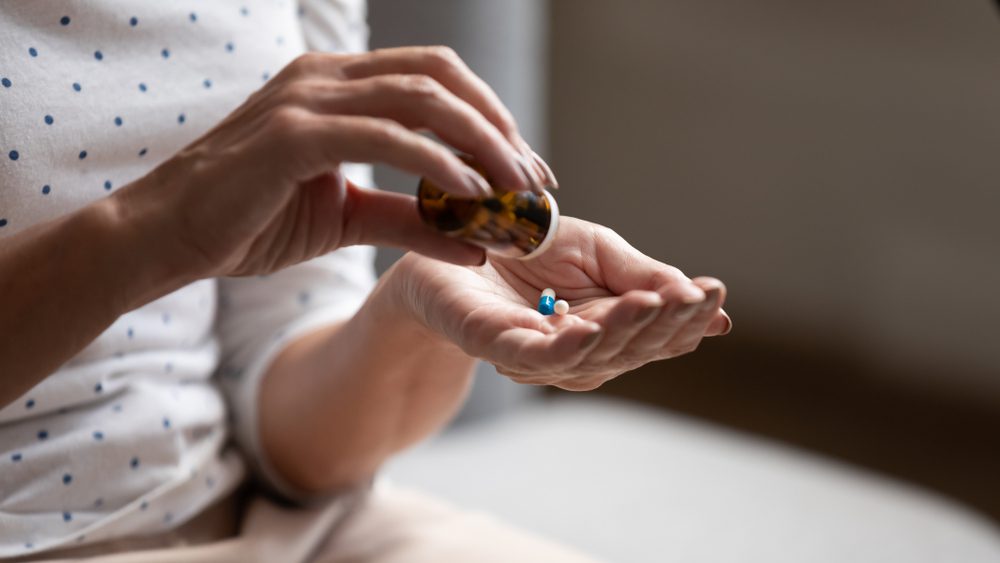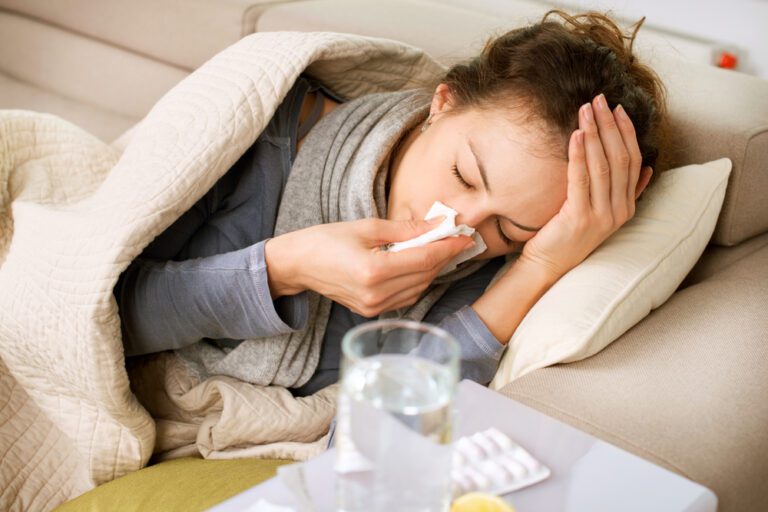Whether you plan to unwind from a long day at work or simply head out for a night with your friends, plenty of people do so with an alcoholic drink in hand. However, even when adult beverages are ingested in a responsible fashion, it’s still fairly important to know that alcohol can easily interact with your medications.
Alcohol has quite the potential to change how these medications work, and can also have a negative impact on your health. In this article, we will go through 14 medications that don’t mix very well with alcohol, and tackle what could happen when both are taken at the same time.
However, you need to keep in mind that these aren’t the only medications that can turn out to be dangerous to take with alcohol.

What happens when you mix alcohol with medication?
Alcohol can truly have many short- and long-term effects on your body. Mixing a couple of prescription drugs with alcohol can be quite dangerous because the two can easily interact in ways that can present potentially risky outcomes. Drinking alcohol with certain medications can
- make the medication less effective
- make side effects even worse
- make the medication toxic to your body
- lead to new symptoms and make you feel ill
- make you feel more tipsy from alcohol than you’d normally be
Alcohol’s effect on the body shifts with age. In older adults, for instance, it takes much longer for the body to break down alcohol, which leads to lower tolerance levels. Older adults are also way more likely to take medication.
This means that they have a greater chance of experiencing interactions between alcohol and medication. Besides, women tend to have higher blood alcohol levels compared to men, especially after drinking the same amount of alcohol. Consequently, women should take caution when drinking alcohol in general.
Opioids and other pain medications
Opioids are generally prescribed to treat moderate-to-severe pain. However, combining opioids like hydrocodone and acetaminophen or even Percocet (oxycodone/ acetaminophen) with alcohol can definitely increase the risk of life-threatening drowsiness and trouble breathing.
Before taking an opioid, speak with your healthcare professional (HCP) if you constantly drink alcohol. They could prescribed an alternative pain medication. If you take an over-the-counter (OTC) pain reliever, like ibuprofen (Advil, Motrin) or even naproxen (Aleve), drinking alcohol isn’t recommended at all.
The combination can definitely increase the risk of stomach ulcers, bleeding, and other serious side effects. Taking way too much acetaminophen (Tylenol) as drinking alcohol could cause liver damage. It’s also important to speak with your HCP about an agreed safe amount of alcohol consumption, especially if you take the OTC medications on a regular basis.
Lorazepam (ativan) and other benzodiazepines
Benzodiazepines are a group of medications with plenty of uses, ranging from treating seizures to anxiety. Common benzodiazepines could include lorazepam, alprazolam, diazepam, and clonazepam.
Combining all these medications with alcohol comes with various risks. Together, they might cause increased dizziness, loss of coordination, and even worsened memory. On top of that, they can heavily raise the risk of an overdose. If you take any benzodiazepines, it’s advised to avoid combining it with any amount of alcohol.
Sleeping pills (ambien, lunesta)
Drinking alcohol with other insomnia medications, or even sleeping pills could have serious consequences. Alcohol and sleep medications have a series of similar effects on the brain. This high-risk combination can lead to serious side effects, including extreme drowsiness and slowed breathing.
Here are some examples of sleeping pills: Zolpidem, Eszopiclone, Zaleplon, Diphenhydramine, Doxylamine, and Melatonin.
Antidepressants and antipsychotics
There are different types of antidepressants. The dangers of drinking alcohol could also vary depending on the medication. For instance, drinking alcohol with tricyclic antidepressants like amitriptyline can lead to extreme dizziness and blackouts.
Also, mixing alcohol with selective serotonin reuptake inhibitors, or SSRIs like sertraline, can lead to worsened feelings of depression. There are, of course, other side effects of combining alcohol with antidepressants, like drowsiness, dizziness, problems with movement, and liver damage.
Monoamine oxidase inhibitors are yet another type of antidepressant. They’re not used to treat depression, but they might cause an unsafe rise in blood pressure, especially when combined with aged or fermented alcohol (such as beer or wine).
For this reason, it’s highly advised to avoid drinking alcohol as you take an MAOI, and even up to 2 weeks after you stop taking it. Mixing alcohol and antipsychotics, like quetiapine should also be avoided. Alcohol can easily worsen side effects, and could even reduce the medication’s effectiveness.

ADHD medications (Adderall, Ritalin)
Medications that are known to treat attention-deficit hyperactivity disorder, or ADHD, like amphetamine salts (Adderall), methylphenidate (Ritalin), and lisdexamfetamine (Vyvanse) can easily interact with alcohol.
Drinking can also worsen the side effects of such medications. Some of the possible side effects of mixing ADHD medications and alcohol include dizziness, drowsiness, poor concentration, and heart issues.
Antibiotics (metronidazole, azithromycin)
Some antibiotics shouldn’t be taken with alcohol. The wide majority of antibiotics generally come with some risk of nausea, vomiting, and diarrhea, in which case alcohol can only worsen the effects. However, in some cases, drinking while taking antibiotics can also lead to more dangerous side effects, like issues and liver damage. Some antibiotics shouldn’t be mixed with alcohol, such as:
- metronidazole (Flagyl)
- Erythromycin (Ery-Tab)
- Sulfamethoxazole/ trimethoprim (Bactrim)
- Griseofulvin
- Isoniazid
- Cycloserine (Seromycin)
- Linezolid (Zyvox)
- Cefotetan (Cefotetan)
- Tinidazole (Tindamax)
Azithromycin is yet another common antibiotic. Experts believe that drinking in moderation while taking this medication doesn’t pose any health threats. However, there’s still not a lot of information about the risks, so you should avoid the combination if you can. Speak with your HCP about azithromycin and any other type of antibiotics you take before deciding to mix them with alcohol.
Blood pressure medications and nitrates
Drinking alcohol on a regular basis might raise your blood pressure. This would make it way harder for most blood pressure medications to work. It’s also advised to limit your alcohol use as you take blood pressure medications if you can.
Drinking alcohol with chest pain medications like nitrates isn’t advised either. Combining alcohol with any of these heart medications might increase the risk of dizziness, fainting, drowsiness, and a faster heartbeat or abnormal heart rhythm.
Metformin and other diabetes medications
A wide variety of medications are generally prescribed to treat diabetes. For example, when it comes to type 2 diabetes, one of the most well-known is metformin. Metformin can easily increase the amount of lactic acid in your body.
In some of the rarest cases, this might lead to lactic acidosis, a potentially life-threatening condition. Metformin has a boxed warning (the FDA’s strictest warning) regarding the risk. Alcohol should be definitely avoided when you take metformin.
Alcohol can also interact with other diabetes medications in plenty of different ways. Drinking alcohol can raise the risk of hypoglycemia (low blood glucose), especially in people living with diabetes.
Adding insulin or even sulfonylureas to this mix only increases the risk of potentially dangerous conditions in the future. Some of the most revealing symptoms of hypoglycemia also include hunger, fast heartbeat, shakiness, anxiety, sweating, dizziness, drowsiness, and confusion.
Warfarin (Coumadin, Jantoven), and other blood thinners
Alcohol can bring various dangerous effects in combination with warfarin (Coumadin, Jantoven), which is a well-known blood thinner. Binge drinking while you take warfarin can easily raise the risk of life-threatening bleeding.
Chronic alcohol use can also raise the risk of clotting. As a general rule, it’s advised to avoid consuming alcohol as you take this medication. However, occasional drinks on holidays or even during special occasions are okay for some people.
If you take warfarin, you can ask your HCP if any amount of alcohol is safe for you. As far as direct oral anticoagulants are concerned, like Eliquis (apixaban) and Xarelto (rivaroxaban), there’s really no direct interaction with alcohol.
But, since alcohol can rapidly increase the risk of bleeding, it’s advised to stick to moderate alcohol consumption. In this particular case, you should aim to limit drinking to 1 or 2 drinks in a day as you take these medications.
Over-the-counter cold and flu treatments (Sudafed, Mucinex)
There are plenty of OTC cold and flu remedies that can help you manage your symptoms at home. Two popular options include pseudoephedrine (Sudafed) and guaifenesin (Mucinex). These medications don’t have too many listed interactions with alcohol.
However, as a general rule, drinking alcohol when you don’t feel well isn’t a good idea, anyway. Alcohol can easily weaken the immune system, which would make it harder for you to recover. Other OTC cold medications, like NyQuil, might cause drowsiness and dizziness as side effects. Combining them with alcohol can easily worsen all those effects.
Cold medications in combination usually involve a pain reliever, like acetaminophen or even ibuprofen. As we mentioned above, mixing OTC pain relievers and alcohol can seriously lead to health complications. As a general rule, if you have a cold or the flu, it’s advised to hold off on drinking until you are completely recovered and no longer take any medication.
Erectile dysfunction medications (Viagra, Cialis)
Among the most common medications for erectile dysfunction generally include sildenafil (Viagra), tadalafil (Cialis), and vardenafil. The known side effects of these medications can wildly differ, but they generally include headaches, flushing, and even vision changes.
There’s one serious side effect of ED medication and that is the fact that it can drastically lower your blood pressure. This can make you quite dizzy or even cause you to faint or fall. Alcohol can also worsen these side effects or make them more likely to occur.
On top of that, heavy drinking can worsen ED. So it’s advised to avoid drinking alcohol if you can, especially while taking ED medications. For some people, 1 or 2 drinks might be ok. However, it’s best to talk to your HCP first.
Verapamil (verelan, calan) and diltiazem (cardizem, tiazac, others)
Verapamil (Verelan, Calan) and even diltiazem (Cardizem, Tiazac, and others) are well-known as non-DHP calcium channel blockers. All these medications are mainly used to alleviate blood pressure and keep your heart beating at a normal rate.
However, both have a risk of interacting with alcohol. As you take these medications, alcohol can easily increase the risk of dizziness. Even more, verapamil and diltiazem slow the rate at which alcohol can be in the bloodstream, and can leave you at a higher risk of intoxication and alcohol poisoning.
Propranolol (Inderal, InnoPran XL, Hemangeol)
Propranolol (Inderal, InnoPran XL, and Hemangeol) is a medication generally used to treat a wide range of conditions, from high blood pressure and tremors all the way to preventing migraines. It’s also prescribed off-label to treat performance anxiety.
At times, propranolol can do its job “too well”, so to speak, and provoke a side effect known as hypotension, or low blood pressure. Adding alcohol to propranolol also increases the risk of this side effect. This is mainly because alcohol might cause propranolol levels in your body to rise. For this reason, HCPs generally recommend you avoid alcohol as you take it.
Corticosteroids
Prednisone and any other corticosteroids (“steroids”) are there to treat a wide range of inflammatory health conditions. Even if they’re very useful, you should still avoid taking them alongside alcohol. There are a couple of good reasons why you should avoid this combo.
First, steroids and alcohol share a couple of side effects. This basically means that your risk of experiencing them goes all the way up as you drink. These shared side effects also include headache, heartburn, and trouble sleeping.
Both can make your immune system much weaker, which makes you more likely to get sick from various infections. There’s a higher chance for you to experience more serious side effects. Both alcohol and steroids can potentially increase the risk of bleeding from stomach ulcers. On top of that, they can more likely provoke broken bones from osteoporosis.
If you found this article insightful, we also recommend checking: A Man Tried the Potato Diet and Lost 117 Pounds. Try It Now!

























